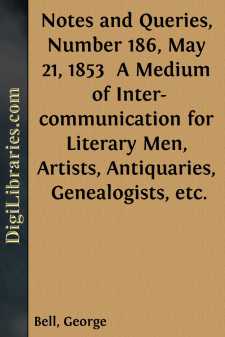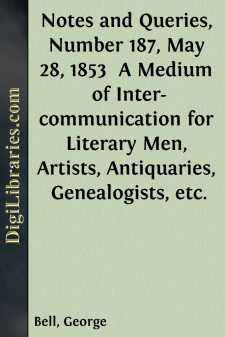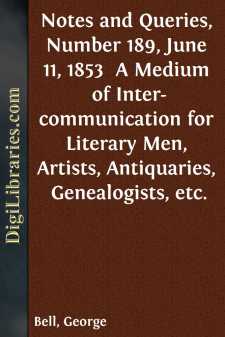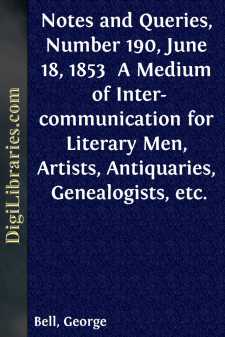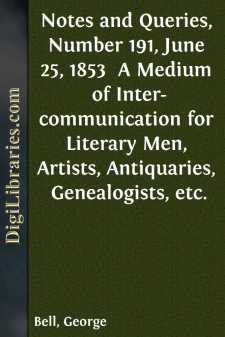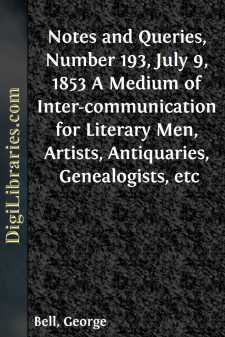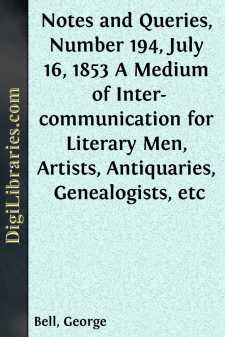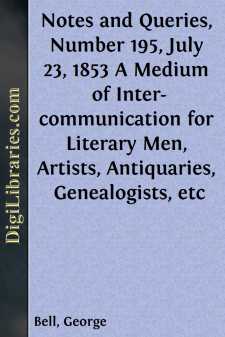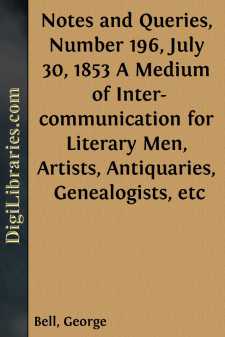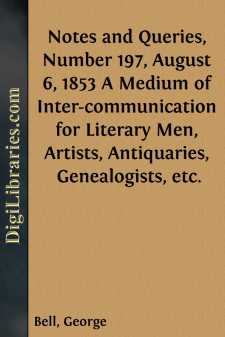Categories
- Antiques & Collectibles 13
- Architecture 36
- Art 48
- Bibles 22
- Biography & Autobiography 813
- Body, Mind & Spirit 142
- Business & Economics 28
- Children's Books 17
- Children's Fiction 14
- Computers 4
- Cooking 94
- Crafts & Hobbies 4
- Drama 346
- Education 46
- Family & Relationships 57
- Fiction 11829
- Games 19
- Gardening 17
- Health & Fitness 34
- History 1377
- House & Home 1
- Humor 147
- Juvenile Fiction 1873
- Juvenile Nonfiction 202
- Language Arts & Disciplines 88
- Law 16
- Literary Collections 686
- Literary Criticism 179
- Mathematics 13
- Medical 41
- Music 40
- Nature 179
- Non-Classifiable 1768
- Performing Arts 7
- Periodicals 1453
- Philosophy 64
- Photography 2
- Poetry 896
- Political Science 203
- Psychology 42
- Reference 154
- Religion 513
- Science 126
- Self-Help 84
- Social Science 81
- Sports & Recreation 34
- Study Aids 3
- Technology & Engineering 59
- Transportation 23
- Travel 463
- True Crime 29
Sort by:
by:
George Bell
LORD BACON'S "ADVANCEMENT OF LEARNING." Considering the large number of quotations from previous writers which occur in Lord Bacon's works, and especially in his most popular and generally read works—his Essays and his Advancement of Learning—it is remarkable how little his editors have done for the illustration of his text in this respect. The French editors of Montaigne's...
more...
by:
George Bell
ON CHAUCER'S KNOWLEDGE OF ITALIAN. In the Memoir prefixed to the Aldine edition of the Poetical Works of Chaucer, London, 1845, Sir Harris Nicolas expresses an opinion that Dan Geoffrey was not acquainted with the Italian language, and therefore not versed in Italian literature. "Though Chaucer undoubtedly knew Latin and French, it is by no means certain, notwithstanding his supposed...
more...
by:
George Bell
TOM MOORE'S FIRST! It is now generally understood that the first poetic effusion of Thomas Moore was entrusted to a publication entitled Anthologia Hibernica, which held its monthly existence from Jan. 1793 to December 1794, and is now a repertorium of the spirited efforts made in Ireland in that day to establish periodical literature. The set is complete in four volumes: and being anxious to see...
more...
by:
George Bell
ON THE USE OF THE HOUR-GLASS IN PULPITS. George Herbert says: "The parson exceeds not an hour in preaching, because all ages have thought that a competency."—A Priest to the Temple, p. 28. Ferrarius, De Ritu Concion., lib. i. c. 34., makes the following statement: "Huic igitur certo ac communi malo (the evil of too long sermons) ut medicinam facerent, Ecclesiæ patres in concionando...
more...
by:
George Bell
WITCHCRAFT IN SOMERSETSHIRE. Perhaps the following account of superstitions now entertained in some parts of Somersetshire, will be interesting to the inquirers into the history of witchcraft. I was lately informed by a member of my congregation that two children living near his house were bewitched. I made inquiries into the matter, and found that witchcraft is by far less uncommon than I had...
more...
by:
George Bell
THE EYE: ITS PRIMARY IDEA. I do not remember to have remarked that any writer notices how uniformly, in almost all languages, the same primary idea has been attached to the eye. This universal consent is the more remarkable, inasmuch as the connexion in question, though of course most appropriate and significant in itself, hardly seems to indicate the most prominent characteristic, or what we should...
more...
by:
George Bell
DERIVATION OF THE WORD "ISLAND." Lexicographers from time to time have handed down to us, and proposed for our choice, two derivations of our English word Island; and, that one of these two is correct, has, I believe, never yet been called in question. The first which they offer, and that most usually accepted as the true one, is the A.-S. Ealand, Ealond, Igland; Belg. Eylandt: the first...
more...
by:
George Bell
WILLIAM BLAKE. My antiquarian tendencies bring me acquainted with many neglected and obscure individuals connected with our earlier English literature, who, after "fretting their hour" upon life's stage, have passed away; leaving their names entombed upon the title-page of some unappreciated or crotchetty book, only to be found upon the shelves of the curious. To look for these in Kippis,...
more...
by:
George Bell
BOOKS CHAINED TO DESKS IN CHURCHES: FONT INSCRIPTION: PAROCHIAL LIBRARIES. It would be interesting to have a complete list of the various books still to be found chained to desks in our ancient churches. The "Bible of the largest volume," the "Books of Homilies allowed by authority," and the Book of Common Prayer, are ordered by Canon 80. to be provided for every church. In some places...
more...
by:
George Bell
HIGH CHURCH AND LOW CHURCH. A Universal History of Party; with the Origin of Party Names would form an acceptable addition to literary history: "N. & Q." has contributed towards such a work some disquisitions on our party namesWhigandTory, andThe Good Old Cause. Such names asPuritan,Malignant,Evangelical, can be traced up to their first commencement, but some obscurity hangs on the...
more...


